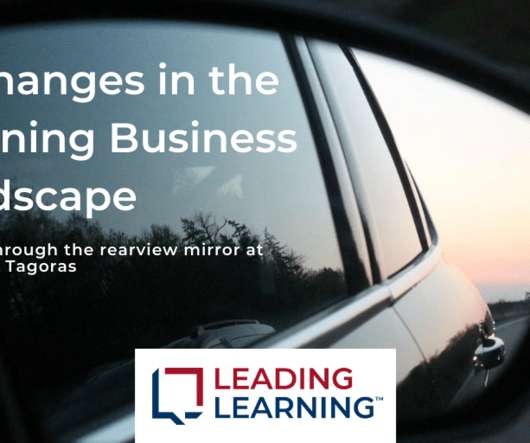Arrested Development? A Strategic Approach to Technology Reboots Association Growth
.orgCommunity
OCTOBER 8, 2019
Somewhere back in the Dark Ages of IT- say two years ago, because that’s how fast the electronic world moves now ¬- we thought about technology as a tool to do business. Technology has made the leap out of the toolbox. And, they are already the most influential group of technology trendsetters. Scan the Market.
.png)














Let's personalize your content